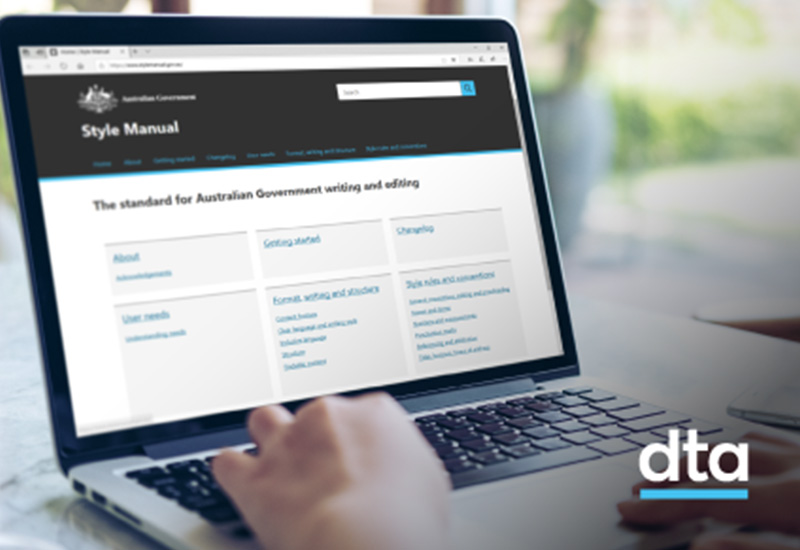[Photo credit: Digital Transformation Agency]
Digital Style Manual now live
The Australian Government’s digital Style Manual went live on 24 September.
The manual is a free resource intended for anyone ‘who writes, edits or approves Australian Government content’, and is an initiative of the Digital Transformation Agency (DTA).
The new digital manual replaces the Style manual for authors, editors and printers. The subtitle of the sixth edition has now been superseded, as the style manual no longer deals with issues specific to books or other forms of print-based publishing. Instead, its primary focus is on the principles of writing and editing content for government digital services, briefs, documents, reports and communications.
Although some of the new material may therefore be best suited to editors of government (and related) publications, rather than editors working in other fields, the new resource also contains some contemporary guidance that will be useful to most of us. This includes information that caters for the needs of readers with low literacy and non-English-speaking backgrounds, tips for improving accessibility and guidance on using inclusive language.
IPEd, along with several other organisations, was contracted to provide an expert review of the public beta version. The review’s purpose was to identify issues that, unless dealt with now, would undermine the integrity of the new manual, and to suggest improvements. The IPEd review team (Ted Briggs AE, Vicki Snowdon AE and Ilona Wallace AE) tackled these issues across four categories — overall ‘feel’; gaps and errors; language, tone and values; and structure — and provided the DTA with a comprehensive report on the beta release.
The team found many positive things, such as the manual’s major focus on users and their needs, information on accessibility, generous use of examples and references, clean layout and accessibility across different devices.
The review also identified five main areas that could threaten the manual’s credibility and usability, and provided recommendations for improvements:
- user profiles (ensuring information is useful for all identified types of users)
- accessibility (lack of a distinct section on it)
- navigation issues to do with menus, linking and cross-referencing
- structure and wording of headings
- relevance of and access to external sources.
Due to time constraints, the DTA has so far taken in only minor changes suggested in the report. IPEd is keen to monitor which of the structural and other significant improvements suggested by the review team are adopted in future, and we remain hopeful that at least some of these revisions will be made during later updates.
The manual is considered a work in progress. The website states that it will be updated and expanded during a process of ‘continuous improvement’, based on further research and patterns in user feedback. Members are therefore encouraged to comment whenever they spot gaps, errors or inconsistencies, suggesting improvements in the box that can be found at the bottom of each page of the manual.
Subsequent revisions and additions made to the manual can be monitored in the changelog section of the website.
Caveat for AE candidates
The Accreditation Board advises candidates for the 2020 IPEd accreditation exam that the set style guide remains the 6th edition of the Style manual. They may nominate the new digital version as an alternative, but will not have online access to it during the exam. If they wish to bring sections of the DTA manual into the exam for reference, they will need to bring printouts included in their bound notes.
Julie Ganner AE and Ted Briggs AE for the Style Manual Steering Group

